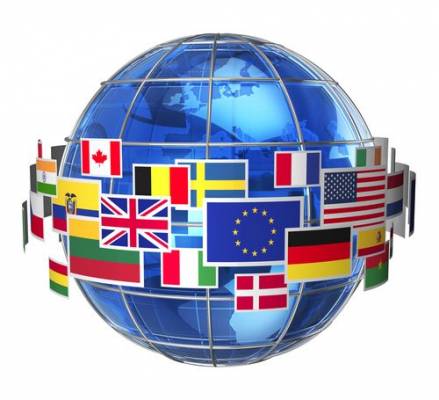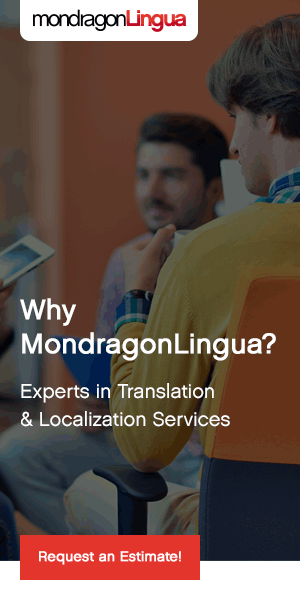Trying to optimize your web content is like having a devil on one shoulder and an angel on the other. The devil is Quantity. The angel is Quality. The temptation is to do whatever it takes to drive visitors to your site. Search engines like you for that, so long as those visitors stick around. The challenge is getting the right visitors to your site, visitors who find enough relevance in your content to want to stay awhile and, if they’re truly inspired, encourage their friends to join the party.
Getting those visitors is challenge enough when you’re only concerned with one language. Identifying and harvesting long-tail keywords, creating topic clusters…the ever-growing, ever-changing world of Search Engine Optimization can feel like fighting an epic battle between digital marketers on one end and the Googles, Bings and Baidu’s on the other.
Now, throw some gasoline on that fire: add in the need to optimize for SEO in 30 different languages. It’s not a matter of simply translating those keywords and topic clusters. It’s another battle, on another front, fought concurrently, with the stakes equally as high.
Fortunately, as in any battle, there are strategies and tactics for success: some ground-rules that will help you prevail. Let’s take a look.
‘When in Rome…”
Conducting Localized keyword research
I can pepper my prose with metaphor and simile, but those words possess a separate meaning from their literal definition, and they work only in my native English. Translate them into Chinese or Brazilian-Portuguese and they become meaningless or even offensive.
But content needs to resonate. Even more so when it’s marketing content. We can try to de-risk it by removing all idioms and figures of speech but then it becomes flat and technical.
Nuance is needed here: local nuance. Translators who can take the intent of the original content, preserve the accuracy of the information and then add localized zing that will resonate in the target language. An English-only site won’t do it. And even in countries where English is dominant, many people still want content that speaks to them in their mother tongue. (Examples include US-Hispanic consumers, or the 2.3B Indians who speak one of 14 different dialects.) Just because your audience can speak English, it doesn’t follow that they want to.
Potential customers in international markets are more likely to be searching in their local language and not in English, so even if they’re comfortable purchasing from you in English, they might not find your site if they’re searching in their local language.
So, think not just about how international customers can engage with your content, but also how they’ll find you in the first place. Conducting localized keyword research will help enormously, but it’s also important for translation agencies to identify completely new words that work locally.
Something else to consider is that with the rise of voice search, users are asking longer questions instead of typing in short keywords. (“Alexa, find me a decent pair of hiking boots for under $100.”) Translation agencies using local resources will help identify those ‘strings’ and be able to customize content for the local audience.
Up until quite recently, the costs of doing this were sometimes difficult to justify. But those barriers are now being shattered by the efficiencies of scale enabled by cloud-based platforms and translator productivity improvements enabled by machine translation. We can do a lot more, for a lot less.
2. “Do as the Romans do…”
Show your audience that you ‘get’ them on a local level.
We mentioned US-Hispanic earlier. If you’re creating content for that audience, are you using the right Hispanic? It’s not the same as Latin-American Spanish or Castilian Spanish. Similarly, if you’re targeting an audience in Montreal, are you using Canadian-French or European French? It may seem relatively trivial: the reader can still understand, after all. But now you have an opportunity to make them feel valued AND create effective SEO.
Optimizing voiceover translations, sub-titles and multimedia file structure is also important here; as are animations and imagery. Your translation agency will understand how to parse these elements to be effective locally: they understand that a simple copy/paste is not going to cut the metaphorical mustard…
Finally, don’t forget the Googles, Bings and Baidu’s of the interwebs. What search engines are being used in your target locale? China, Russia, eastern Europe and Korea all require extra attention to make your optimization efforts successful.
3. Build it strong!
It’s often a surprise to learn that hosting companies are often unprepared for a sudden surge in users from multiple locales. You may need to acquire country-specific top-level domains (ccTLD) for each new locale you target or create subdomains and directories for each new location and language. Engage a translation partner that understands the intricacies of your needs. There is no one-size-fits all solution!
And it may seem obvious, but will your sites work in every region? Links need to work; pages need to load quickly. Your translation team will want a good working relationship with the IT teams to address issues as they arise.
In conclusion: international SEO is essential for global success, and there are a lot of moving parts! But these fundamentals: Do as the Romans do and build it right, will help you enormously. So will the right translation partner.
Need help going global? We can help with all your multilingual website and content needs, from localized keyword research to multimedia localization to international SEO. Contact us to learn more.







